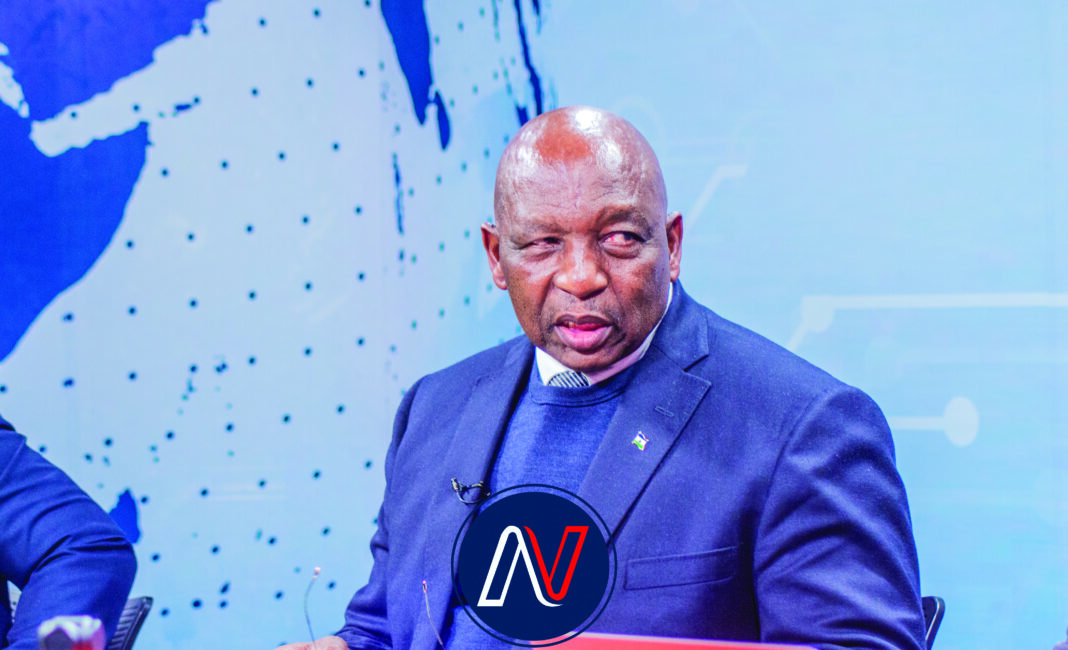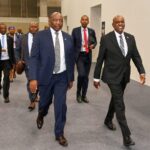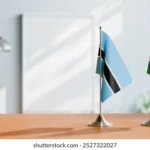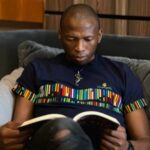Nkopane Mathibeli
“The best argument against democracy is a five minutes conversation with the average voter” – Winston Churchill
In this piece, we focus on the political psyche and state of mind related to the election of government in Lesotho. On what basis do Basotho decide which government to elect? My intention with the last two instalments was to outline the evolution of a political factor to which the differences between Lesotho and Botswana’s development trajectory are attributable i.e. the political wisdom and virtue of both country’s political elite and electorate. As we proceed with Botswana as a benchmark in this introspective conversation, it is of critical importance to bear in mind that for it’s founder to build it’s tribes into the proud and united nation we see today, a simple philosophy of virtuous traditional Tswana leadership (the chieftaincy) – as expressed by the Setswana words “Kgosi ke kgosi ka morafe” – was adopted. Basotho have theirs “morena ke morena ka sechaba”. What do they mean and what is the relevance of their meaning here?
They simply mean that the legitimacy of a chief was determined by his ability to guarantee the welfare of each of his subjects. Having demonstrated how Khama integrated this chiefly obligation into Botswana’s bureaucracy/state machinery and how as a result, the state’s subservience to the electorate became a condition for latter’s loyalty to the national/political leadership, as stated earlier, here we look at all these in the context of Lesotho. For instance, how did the political state of mind among Basotho evolve? We will sum up by examining whether Matekane can possibly exploit the political psyche of the voters to escape the fate of being a one term Prime Minister? But doesn’t that look plausible given the saddest anomaly of our nation? Maybe we must first highlight this anomaly.
A fractured foundation of nationhood
Having previously paid homage to Seretse Khama, it would be grossly remiss of me not to mention that in terms of visionary leadership and a meticulous formulation and execution of development plans, Prime Minister Leabua Jonathan was undoubtedly at par with President Seretse Khama and that was attributable to one factor common to them. Both Khama and Jonathan were descendants of chiefly lineages and hence as executive heads of their respective states, reconfiguring those States to the default settings of the chieftaincy such that the primary obligation of the Executive Head of State was to use the full capacity of the State for the those sole benefit of the electorate was second nature to them. Both were equally robust in thought and so build equally solid foundations for the transition of their respective countries. So where did Lesotho stray? My take is that it strayed at the point where the foundation of it’s nationhood was fractured. Let us start with what actually constitutes the foundation of our nation. As a point of departure, this nation was founded around the chieftaincy/monarchy.
As previously alluded to in the previous instalment, when building this nation, King Moshoeshoe I adopted the wisdom dispensed by his mentor. Briefly, two of it’s most important principles that placed the chieftaincy/monarchy at the centre relate to two policies that were in turn, central in giving Basotho an identity. The first was a wealth distribution policy called mafisa formulated from the principle; share your wealth with your subjects. As a policy, the King loaned cattle to poor families. The second was a social development policy formulated from the principle; take care of the weak and vulnerable. It was actualised by among others, cultivating ts’imo ea lira being a field controlled by a chief and whose harvest was for the exclusive use by vulnerable individials (orphans, widows etc.) These are just but two of the policies that rallied Basotho to identify with and pay allegiance to their King and by extension, the nation he founded and led. Our identity revolved around the King and Country. Unfortunately that is no longer the case today despite still having a King, a country and on top of that, a national flag, motto and a coat of arms. Before we round up by looking at the usual loophole through which Matekane like many before him may slip through, let us briefly step back into our past for answers why and how this foundation was fractured.
Intentional destruction
According to L.B.B.J. Machobane in his seminal book (Government and Change in Lesotho, 1800 – 1966), one Emile Rolland, a Lesotho born and bred son of British missionaries then (1868) resident at Morija, used his knowledge of Lesotho, it’s people and culture to write a 34 paged memorandum for the consideration of the then Queen of England. It’s purpose was to ease the difficulty of his compatriots in dealing with King Moshoeshoe I who despite seeking British protection against Afrikaner invasion, refused to budge on his main condition for the protection he sought i.e. to continue ruling his country with its own laws while the British only provide protection against invasion. Surprised by his bullishness in spite of negotiating from a position of weakness, they were further surprised by the degree of loyalty the chiefs he had placed around the country had for him. This they discovered when they tried but failed to bypass him by “buying” the chiefs. The ultimate goal of Rolland’s memorandum was to make the British government aware of how and why the King’s power and influence is deeply entrenched and how as a counter attack, the chieftaincy as his right hand could gradually be weakened. Rolland’s plan worked out very well because as a result of all laws inspired by the insight of his memorandum, the chieftaincy began to lose power/influence hence why some frustrated chiefs resorted to ritual murders (liretlo).
The gradual waning of the chieftaincy at last left the monarchy exposed for a total onslaught the ultimate end of which was section 91(2) of the constitution. It says that whether the King agrees or disagrees with anything demanded by the Prime Minister, such will be done by the Prime Minister but will be considered done by the King. This is wrong especially being a brainchild of people whose constitutional monarch has an executive royal prerogative. To rectify it, the expert report on constitutional reforms rightly recommended we follow a somewhat British route. Constitutionally, what differentiates their Head of State to ours? The British may not have their constitution codified. However, in 2014 their parliament’s political and constitutional reform select committee in conjunction with the King’s College London embarked on a three pronged project of constitutional review. The outcome here was three blueprints. Included among them was one depicting how a codified constitution would look like. It’s contents were drawn from their statutes, conventions, common law and historical documents. In essence, it presented the situation as it obtains. Regarding functions of the Head of State, here is what it says which is a direct opposite of 91(2) of our constitution. It’s 4(10)(c) says: In the performance of any function under this Constitution or Act of Parliament, the Head of State shall act in accordance with the advice of the Prime Minister, except where the Head of State is required thereunder to act at the discretion of the Head of State (when the Head of State shall exercise an independent judgement). Until we rectify our constitutional anomaly, the electorate will always revert to it’s default setting regarding the election of national political leadership.
The better devil syndrome
Here is where Churchill’s words come in. In spite of tangible grievances pertaining to embezzlement, nepotism and maladministration raised by the opposition against the government, it remains highly likely that a sizeable portion of the electorate will see Matekane as the better devil, as they comparatively did to incumbents and opposition in the past. This better devil comparison has sadly become a benchmark of eligibility in our context. Isn’t that tragic? It of course is. Unlike Batswana who use the state’s subservience to the electorate as such a benchmark, we remain firmly in the grip of this terrible sickness – the better devil syndrome. But who is to blame here, politicians or the electorate but more precisely, which factors make it likely to work in Matekane’s favour in the coming elections? It is precisely what Churchill means by “the average voter”. To appreciate who the average voter is in the context of our Kingdom, a glance at any Education Report of the Bureau of Statistics will be helpful. On average, these reports indicate that 53% of people who by virtue of age constitute the electorate have only attained primary education; 45% only secondary/high education while only 2% reached the tertiary level. This has big implications which deserve to be thoroughly explained in future. That notwithstanding, this is not the only factor. Again, it does not exclusively benefit Matekane’s electoral fortunes; his predecessors with similarly inexcusable flaws of embezzlement, nepotism and maladministration duly benefited. Is this our fate or merely a phase in our transition?
Summary
- As we proceed with Botswana as a benchmark in this introspective conversation, it is of critical importance to bear in mind that for it’s founder to build it’s tribes into the proud and united nation we see today, a simple philosophy of virtuous traditional Tswana leadership (the chieftaincy) – as expressed by the Setswana words “Kgosi ke kgosi ka morafe” – was adopted.
- Having demonstrated how Khama integrated this chiefly obligation into Botswana’s bureaucracy/state machinery and how as a result, the state’s subservience to the electorate became a condition for latter’s loyalty to the national/political leadership, as stated earlier, here we look at all these in the context of Lesotho.
- Both Khama and Jonathan were descendants of chiefly lineages and hence as executive heads of their respective states, reconfiguring those States to the default settings of the chieftaincy such that the primary obligation of the Executive Head of State was to use the full capacity of the State for the those sole benefit of the electorate was second nature to them.

Your Trusted Source for News and Insights in Lesotho!
At Newsday Media, we are passionate about delivering accurate, timely, and engaging news and multimedia content to our diverse audience. Founded with the vision of revolutionizing the media landscape in Lesotho, we have grown into a leading hybrid media company that blends traditional journalism with innovative digital platforms.








